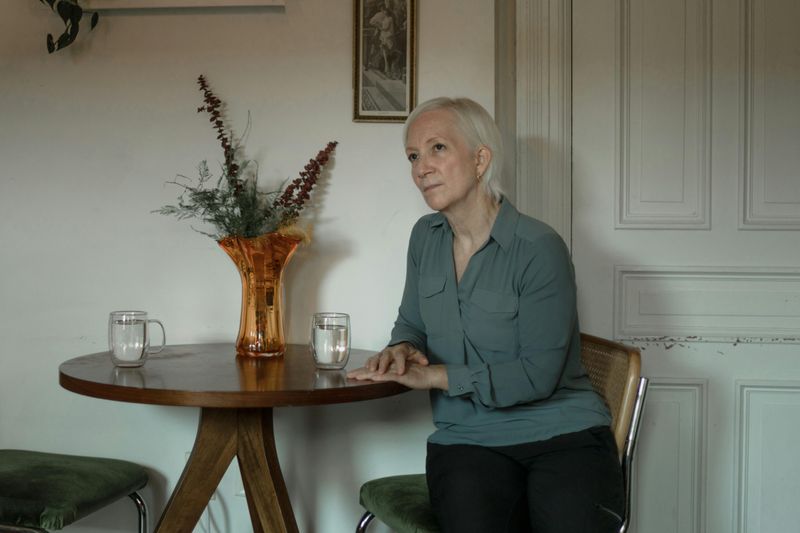Life has a funny way of teaching us important lessons when we least expect them. Sometimes we have to stumble, fall, and pick ourselves up before truly understanding what matters most. These valuable insights often come after mistakes, heartbreak, or challenging experiences that shape who we become. Let’s explore eleven life lessons that many people only grasp after learning them the hard way.
1. Your Health Is Your Greatest Wealth
Nobody appreciates good health until they lose it. Young folks often burn the candle at both ends, surviving on junk food, minimal sleep, and excessive stress without a second thought.
Years later, those choices catch up in the form of chronic conditions, decreased energy, and medical bills that could have been avoided. The body keeps score of everything.
Making health a priority isn’t about obsessing over perfect diets or marathon training. It’s about reasonable sleep schedules, balanced nutrition, regular movement, and managing stress before your body forces you to slow down through illness or exhaustion.
2. Money Management Matters More Than Income
Earning a six-figure salary means nothing if you’re spending seven figures. Many high earners find themselves broke because they never learned to manage what comes in.
Financial literacy rarely gets taught in school, leaving many to figure it out after maxing out credit cards or facing crushing debt. Smart people learn that a modest income with good habits builds more wealth than big paychecks that disappear instantly.
Creating a budget, living below your means, and setting aside savings before spending on wants aren’t exciting lessons. Yet they’re the foundation of financial freedom that most people only appreciate after experiencing money troubles firsthand.
3. Relationships Require Consistent Effort
Hollywood sold us the myth that love conquers all, but real relationships thrive on mundane daily choices. Good relationships don’t just happen – they’re built through communication, compromise, and showing up even when it’s inconvenient.
Many learn this after watching important connections wither from neglect. That friend you meant to call, the partner whose needs you overlooked, or the family member you took for granted – all relationships need regular maintenance.
The hard truth? Love alone isn’t enough without effort. Healthy relationships aren’t 50/50 splits but 100/100 commitments where both people give their all, especially during tough seasons when feelings fluctuate but dedication shouldn’t.
4. Saying No Creates Space For What Matters
People-pleasers spend years saying yes to everything, wondering why they feel exhausted and resentful. Setting boundaries feels selfish until you realize it’s actually necessary for genuine generosity and presence.
Every yes to something unimportant means saying no to something that matters more. Your time and energy aren’t unlimited resources. Those who try to make everyone happy ultimately make nobody happy, especially themselves.
Learning to politely decline without lengthy explanations is a skill worth developing. The initial discomfort of setting boundaries pales compared to the freedom gained. True friends respect your limits, while those who push against them reveal themselves as people who valued your usefulness more than your wellbeing.
5. Working Smart Trumps Working Hard
Burning yourself out for a job that would replace you within days isn’t the badge of honor society makes it seem. Many ambitious professionals learn after health scares or missed life milestones that working smarter matters more than working longer.
Productivity isn’t about more hours but better focus, systems, and priorities. The most successful people aren’t necessarily the hardest workers but those who leverage their strengths, delegate weaknesses, and focus energy where it creates maximum impact.
Career advancement rarely comes from exhaustion. It comes from solving important problems, building relationships, and creating value efficiently. Work-life balance isn’t lazy – it’s a sustainable strategy that prevents burnout while actually improving what you produce.
6. Most Regrets Come From Things Not Attempted
Ask elderly people about regrets, and few mention failures. Instead, they wish they’d taken more chances, expressed more feelings, or pursued more dreams. The pain of rejection fades, but the wonder of “what if” can haunt decades.
Fear of failure keeps many playing small, only to realize later that attempting and failing hurts less than never trying. Whether it’s starting a business, expressing love, or pursuing a passion, courage isn’t about fearlessness but acting despite fear.
Life passes quickly regardless of choices made. The question becomes whether you’ll spend it wondering about roads not taken or collecting experiences that shaped you – even the difficult ones. Bold attempts create better stories than cautious inaction.
7. Your Environment Shapes Your Choices
Willpower isn’t enough. Your surroundings silently influence decisions more than most realize until changing environments reveal how much context matters. People struggling with habits often blame personal weakness rather than examining their environment’s role.
Want healthier eating? A kitchen stocked with processed snacks makes that nearly impossible. Trying to save money? Friends who pressure for expensive outings create constant temptation. Seeking positivity? Negative news and complainers drain optimism faster than you can rebuild it.
Smart people design their surroundings to make good choices easier and bad ones harder. This means carefully selecting what enters your physical space, social circle, and mental diet. The environment either supports your goals or sabotages them – rarely neutral.
8. Happiness Comes From Progress, Not Perfection
Perfectionism keeps many stuck in perpetual dissatisfaction, always moving goalposts further away. The joy of achievement vanishes when immediately replaced with higher expectations without celebration or gratitude for progress made.
Life becomes a series of disappointments for those waiting to be happy until everything’s perfect. Meanwhile, others find contentment in small improvements and ongoing growth. The difference isn’t circumstances but perspective – seeing how far you’ve come rather than focusing solely on distance remaining.
Happiness research consistently shows that meaningful progress toward valued goals creates more satisfaction than actually reaching them. This explains why many successful people feel empty after major achievements – they missed the joy along the journey, falsely believing arrival would fill the void.
9. Everyone Is Fighting Battles You Can’t See
Behind perfect social media feeds and polite small talk, everyone carries invisible struggles. The coworker who seems to have everything together might be battling depression. The “perfect couple” might be considering divorce. The wealthy neighbor might feel desperately alone.
Judging others harshly based on surface appearances usually reflects ignorance of their full story. True empathy develops after experiencing how differently our own struggles appear from outside versus how they feel from within.
Understanding this truth transforms how we treat others. Small kindnesses matter more when you realize they might intersect with someone’s worst day. Compassion costs nothing but creates ripples far beyond what we witness. Everyone deserves grace for battles we know nothing about.
10. Change Happens Through Small Daily Habits
Dramatic transformations rarely happen through massive efforts but through tiny choices repeated daily. The one workout doesn’t get you in shape – consistency does. Reading one book doesn’t make you educated – lifetime learning does.
Many wait for motivation or perfect circumstances before starting important changes. Meanwhile, others make modest progress through imperfect action taken regularly. The difference compounds dramatically over time.
Success in anything meaningful comes from showing up on good days and bad ones. It’s built during those unremarkable Tuesday afternoons when nobody’s watching and motivation is low, yet you do it anyway. Extraordinary results come from ordinary consistency, not occasional heroic efforts.
11. Time Accelerates As You Age
Remember how summer vacations felt endless as a child? That same three months now vanishes in what feels like weeks. This isn’t imagination – psychological time genuinely accelerates with age as each year becomes a smaller percentage of total life experience.
Many realize too late that time is life’s only non-renewable resource. Money can be earned back, mistakes forgiven, and opportunities recreated – but time passes permanently. This perspective shift often comes after milestone birthdays or losing loved ones.
The lesson? Be intentional with your hours. Presence with loved ones matters more than perfect outcomes. Creating memories outweighs accumulating possessions. And sometimes, the most productive thing isn’t checking tasks off lists but fully experiencing the moment that will never come again.











